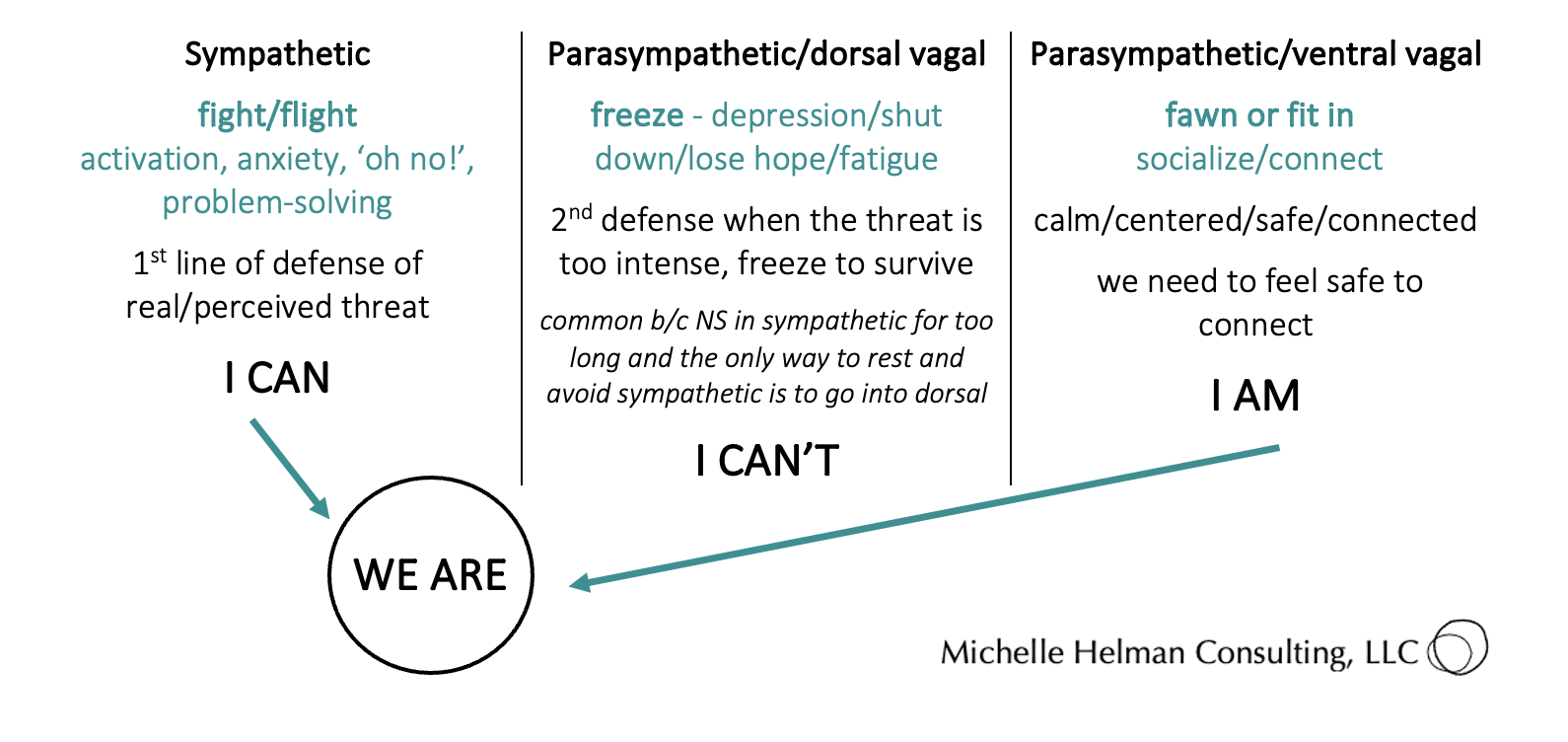|
Being trauma-informed generally means having an understanding about how trauma works and integrating that as a lens and holistic approach in your work and relationships. Here is a basic overview of some key components to being trauma-informed in your facilitation, space-holding, and gathering. Stress happens! It impacts the nervous system (NS). It is natural and unavoidable - so we can work with it. Trauma is a somatic experience and result of an event, or multiple events, that was/were experienced and has/had an effect on the NS. It can be a one-time or chronic. The traditional understanding of the trauma response is fight or flight. If you'd like, take a moment to reflect on your experience with thinking, learning, or feeling it. Now let’s explore the 3 parts that the NS tends to respond with: Getting to WE
At the nexus of I AM and I CAN is the space to imagine and co-create!
A trauma-informed approach for an organization or team might look like:
How might we… > Integrate a trauma-Informed lens and somatic approach throughout the facilitation process?Incorporate movement, music, and rest; offer participation options, and consider energy levels.
> Hold space and balance roles - acknowledge and celebrate differences and lived experiences? Context matters – note the space, time, and people e.g. bathroom, access, safety, and snacks!
> Share stories and listen – strengthen response techniques when you experience discomfort and manage talk time? Culturally-relevant core human needs include security, connection and belonging, identity, acknowledgement and recognition, freedom, and autonomy. Remember that people need those things!
A few of many resources that inspire my approach and ongoing learning: Call of the Wild - by Kimberly Ann Johnson Healing Justice Lineages - by Cara Page and Erica Woodland My Grandmother’s Hands - by Resmaa Menakem Polyvagal Theory - by Steven Porges Substance Abuse and Mental Health Services Administration The Body Keeps the Score - by Besser van der Kolk Trauma Stewardship - by Laura van Dernoot Lipsky and Connie Burk When the Body Says No - by Gabor Maté →Let’s connect to talk about how you or your team might benefit from integrating a trauma-informed approach. NOTE: This document is for general learning purposes only - it does not provide medical advice. The author is not liable or responsible for any outcomes caused by actions taken from this publication. No part of this publication may be reproduced, distributed, or transmitted without the prior written permission and consent of the author.
0 Comments
Leave a Reply. |
AuthorHi, I'm Michelle, a Researcher & Facilitator playing in the nexus of health, justice, and peacebuilding. Archives
March 2024
Categories |
|
You have the answers - we help you find them!
Contact us to schedule your free discovery call today. |
© COPYRIGHT 2023.
ALL RIGHTS RESERVED |




 RSS Feed
RSS Feed